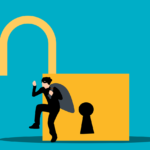Online scams are on the rise, targeting both individuals and businesses alike. As scammers become more sophisticated, it’s crucial to stay informed and take steps to protect your information. Understanding how to avoid these scams can save you from potential financial losses and stress.
In this article, we will provide you with practical tips to recognize and fend off online scams. By learning about common tactics used by scammers, using strong passwords, verifying sources of information, and keeping your software updated, you can significantly reduce your risk of falling victim to these schemes. Stay safe and informed for a secure online experience in 2024.
Recognize Common Online Scam Tactics
Scammers use various tactics to deceive people and steal their information. Being aware of these tricks can help you avoid falling victim. Here are some common online scam tactics:
- Phishing Emails: Scammers send fake emails that look like they come from legitimate companies. These emails often ask you to click on a link or provide personal information. Always double-check the sender’s email address and look for signs of fake emails, like grammatical errors or suspicious links.
- Fake Websites: Some scammers create websites that look real but are actually fake. These sites trick you into entering your personal information. Look for small details like misspelled words or unusual domain names to spot fake websites.
- Social Media Scams: Scammers use social media platforms to trick you into sharing personal information or sending money. Be cautious of unsolicited messages and friend requests from unknown people. Avoid clicking on suspicious links shared on social media.
Use Strong and Unique Passwords
Passwords are your first line of defense against online scams. Here’s how to create strong and unique passwords to keep your accounts secure:
- Use a Mix of Characters: Create passwords that are at least twelve characters long and use a combination of upper and lowercase letters, numbers, and special characters. Avoid using easily guessable information like your name or birthdate.
- Avoid Reusing Passwords: Using the same password for multiple accounts can put you at risk. If one account gets hacked, others could be easily accessed too. Use a different password for each account.
- Consider a Password Manager: Remembering strong and unique passwords for each account can be tough. A password manager can help you store and generate secure passwords without having to remember them all.
- Regularly Update Passwords: Change your passwords every few months to add an extra layer of security. This makes it harder for hackers to gain continuous access to your accounts.
Following these tips can significantly reduce the risk of falling victim to online scams. Always prioritize your online safety by staying informed and vigilant.
Verify Sources Before Sharing Information
It’s important to verify sources before sharing any information online. Sharing unverified information can lead to spreading false data and falling for scams. Here are some ways to verify sources:
- Check the URL: Look closely at the website’s URL. Make sure it matches the source you expect. Scammers often create fake websites with URLs similar to trusted sources.
- Look for Contact Information: Reliable websites usually have contact information. Check if the site has a phone number, email address, and physical address. If this info isn’t available, be cautious.
- Cross-Reference Information: Before sharing any news or information, cross-reference it with other reputable sources. If the information appears on multiple trusted sites, it is more likely to be accurate.
- Analyze the Content: Be wary of sensational headlines or content that pushes an emotional response. Scammers use these tactics to trick people. Make sure the content is factual and well-supported.
Regularly Update Your Software and Devices
Keeping your software and devices updated is essential for protection against online scams. Updates often include fixes for security vulnerabilities that scammers try to exploit.
- Enable Automatic Updates: Activating automatic updates on your devices ensures you receive the latest security patches as soon as they are released. This is a simple way to keep your data safe without the hassle of manual updates.
- Update All Devices: Ensure all devices connected to your network are updated, from smartphones and computers to smart home gadgets. Each device can be a potential entry point for scammers.
- Backup Your Data: Regularly backup your data in case your device gets compromised. Use cloud storage or an external hard drive to keep your files safe, even if something goes wrong.
Conclusion
By understanding common scam tactics, using strong and unique passwords, verifying sources before sharing information, and regularly updating your software and devices, you can create a safer online experience. As online scams continue to evolve, it is essential to stay vigilant and proactive in protecting your information.
Keeping your digital life secure does not have to be overwhelming. Following these steps can make a significant difference. If you need further assistance or expert advice on network security and cybersecurity, Alliance TechSolutions is here to help. Reach out to us for comprehensive support to keep your business safe in the digital world of 2024 and beyond.



